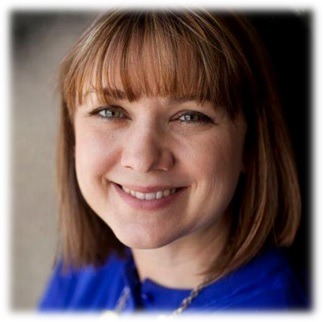The story of how Tamara Keith ended up at NPR is an inspiring one that was covered in both Scott Simon’s blog and on NPR’s Weekend Edition Saturday earlier this month. She was 15 years-old when she wrote that first letter to NPR host Scott Simon. I hope you take three minutes at the start of a new week to listen to (or read) Tamara’s story of how she broke into radio.
 It is a story of persistence (on Tamara Keith’s part), empathy (on the part of several NPR professionals), and that one huge intangible – luck.
It is a story of persistence (on Tamara Keith’s part), empathy (on the part of several NPR professionals), and that one huge intangible – luck.
It is also a reminder to us who are in positions to hire new people and help those trying to break into the industry about the serendipity of these moments. We have the ability to exercise some control – or at least nudge some of these moments along. If we take the time to care.
It also makes us want to rifle through our desks and email boxes to find those letters and inquiries that young people have written to us, looking for that first big break.
Like pretty much everyone in radio who tried to break into the industry a few decades ago, that first job is often difficult to come by – especially in an organization where you truly wish to work. In Tamara Keith’s case, it was NPR. In mine, it was Frank N. Magid, which at the time was the only company doing media research for TV and radio stations.
It took me three interviews over a two-year period to get that first job at Magid, and convince them to take a chance on me. And even then, they created a special below-entry-level research analyst position for me. Like Keith – and many of you reading this post – you pay your dues early and often, and in good organizations, you move up. Two years later, I was heading up the radio and publishing research divisions for Magid, thanks to attrition, luck, and hard work.
So in later years as I moved into broadcast management and then started Jacobs Media (and now jācapps), I have tried to be sensitive to those fledgling radio professionals looking for a break. And it’s not easy, because there have been many people trying to work their way into the radio business, and not enough time and bandwidth to be able to acknowledge and accommodate them all.
I feel guilty, to this day, about not responding – even in a quick way – to all those who are looking for the first career break – because I don’t want to be “that guy” who blows off someone who earnestly needs some mentoring and a recommendation, AND because I also live in fear that by glossing over a resume or not returning a call, I’ll miss the next Ira Glass, the next Kevin Weatherly, the next Larry Rosin. Looking back on it, I’ve done a pretty good job of acknowledging but I’m not batting a thousand either.
Fortunately, the technology makes it easier to acknowledge applicants and up-and-comers. But not always in a meaningful way. The onus is on all of us in positions of authority to build systems that allow us to filter these applications and emails of interest, and to find ways to respond via email, phone calls, or even texts. Because you never know.
In case you hadn’t noticed, that long line of applicants dying to work at your station has shriveled up – or all but disappeared. And now we find ourselves in the squishy position of having to recruit talent to work at our stations.
It’s not just us. The hot companies – Google, Pandora, Amazon, Apple – are going all out to attract the young Tamara Keiths, putting the pressure on those of us in “traditional media” to find ways to bring in bright young people while retaining the ones we have. At last December’s Jacobs Summit, Vh1 president, Tom Calderone, talked about the need to create “innovative buckets” to attract viewers and to remind your staff about the value of the environment.
But that’s once you’ve got them in the door. Today, a challenge for radio is attracting them in the first place. Just as certain formats are challenged by the so-called “demographic cliff,” so is the industry as a whole.
 That’s why the young people working inside your stations now, or those who express an interest to do so, are worthy of a little more of your attention. I can think of several bright stars at stations where we consult who have lost one of those Millennials to what appeared to be a more gleaming opportunity outside the radio business.
That’s why the young people working inside your stations now, or those who express an interest to do so, are worthy of a little more of your attention. I can think of several bright stars at stations where we consult who have lost one of those Millennials to what appeared to be a more gleaming opportunity outside the radio business.
It starts with taking the time to acknowledge those letters, phone calls, and emails that still trickle into most stations today. It starts with going a bit further to do those station tours when a prize winner or visitor shows up in the lobby. It starts with encouraging your staffers to speak at area middle and high schools about the joys (yes, there are many) of working in the radio business. And it starts with partnerships with local colleges, universities, and your state broadcaster associations to support scholarships and to actively seek out the next big star.
When a young person wants to break into radio, who’s doing who the favor? Is it the broadcast pro with a big heart who responds to a 15 year-old’s email or is it that bright high schooler who truly wants to explore the radio business as a possible career path.
In either case, there’s a lot of luck involved.
And the effort and empathy to enable it to happen.
So are you feeling lucky?
- What To Do If Your Radio Station Goes Through A Midlife Crisis - April 25, 2025
- A 2020 Lesson?It Could All Be Gone In A Flash - April 24, 2025
- How AI Can Give Radio Personalities More…PERSONALITY - April 23, 2025




I the real takeaway here is that the once steady stream of radio wannabees has slowed to a trickle…on a good day. Radio should be way beyond being responsible enough to respond to hungry applicants and ideally would be actively recruiting them.
I serve on the BOD of my college radio station – a commercial entity that must survive on its own income, volunteers and wits. Some of the smartest college kids I’ve ever know have come and gone from there, doing truly amazing work of different kinds both on and off air, yet in the 5 years I’ve been on the BOD, NOT ONE has ended up in terrestrial radio. I’m sure there are as many reasons for that as student volunteers, but radio’s loss is other sector’s gain. I’m listening to their custom stream aimed exclusively to the campus as I write this (on their app purchased from some app development company based in a Detroit suburb run by a radio consultant…for some reason the name escapes me. Jac-something-or-other IIRC).
This puts them way ahead of many large market radio stations in my opinion and the sad thing is the person who runs it has an internship at Apple for the summer, not at any radio company. Radio isn’t cool anymore – maybe its time to recruit some 20-somethings to bring that cool factor back – it certainly can be done. Note to all you radio CEOs – as a side benefit, they can all put music on your iPods and Blackberries for you when your kids and grandkids aren’t available 🙂
Bob, the equation has shifted. While many of us grew up with radio during a time when there was a seemingly endless supply of young applicants, most stations struggle to find great sales, programming, and management people – not to mention ones who are under 35.
As for your college radio station, we do work with them in the app division to cut them better deals. Whether these kinds end up in broadcast radio or not, it is our responsibility to support college radio initiatives and stations – especially in our home markets and states.
Thanks for the note.
I’m sure I speak for all of your college radio clients in saying we appreciate that you’re willing to cut us a break. It’s a shame that more kids don’t end up in radio that can return the favor in a full price zone.
I think radio could be using college stations as talent banks. Bench strength used to come from small markets, nights and weekends and now most of those are tracked.
There’s no doubt there’s a viable farm team on courses all over America. Tapping into the talented, motivated students would just be smart. Many state broadcaster associations also support students with scholarships. And of course when the Conclave was on all 8 cylinders, it did a solid job in this area, too.
Hi Fred:
Love this subject. In February 2013, I agreed to take a high school junior for an internship in the Production department here at Desert Radio Group.
I worked with Viri on voicing spots and audio editing, but it became apparent to me that she really wanted to be an air personality on our CHR station, U 92.7. So, we began working on over-the-intro talkups. I worked with her on economy of words, keeping a high energy level, and most significantly, speaking the language of the listeners.
Viri was super enthusiastic about radio. When the internship ended in June 2013, not wanting to abandon her and have that enthusiasm fade, I invited her to come in a couple times a month to continue developing her future on-air skills.
Long story short – when a weekend opening came up at U 92.7, I gave the PD a demo of Viri’s studio airchecks and asked if he would at least interview her. He did and she got the gig. Her first on-air shift was the weekend before she graduated high school and she now has midday Sundays as her regular shift! At age 18, she sounds fantastic. In addition to live promos and station stuff, her content is squarely on-target with her peers. I couldn’t be more proud of her.
You know, it’s so rare to find young people interested in radio. Mentoring this high-school student and hearing her grow as an air personality has been extraordinarily rewarding. For anyone finding a young person who demonstrates a sincere, genuine interest in radio, I urge you try to find the time to share your knowledge and skills.
Nick Summers, Production Director
Desert Radio Group, Palm Springs, CA
Nick, this is a great story and it illustrates how time and attention can make a difference.
If someone at every station in town mentored a high school or college student, it could make a difference industry-wide. Thanks for taking the time tell us your mentoring story.